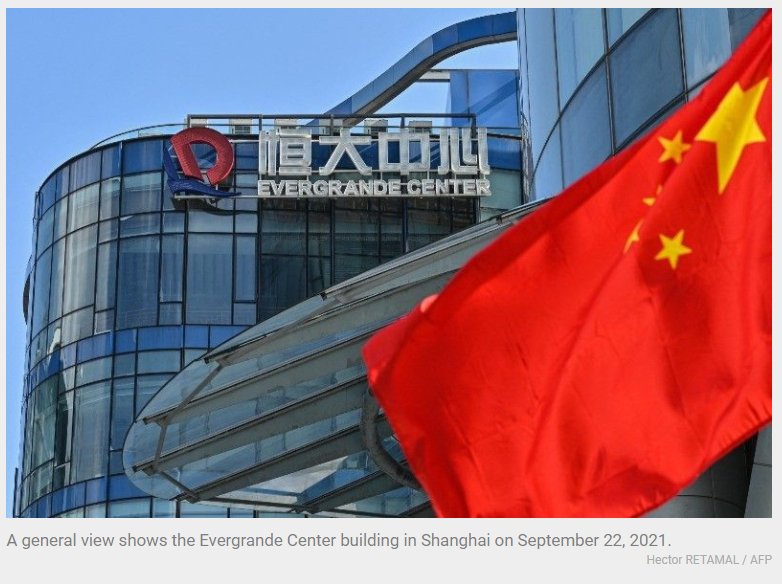Evergrande debt crisis unlikely to affect Philippine financial system
MANILA, Philippines — The multi-billion dollar debt mess of embattled property developer Evergrande that is threatening to upend China’s economy will unlikely have a significant impact on the Philippines’ financial system, the central bank and economists said.
In a statement on Wednesday, Bangko Sentral ng Pilipinas Governor Benjamin Diokno said the Philippines is insulated from shocks that may come from the possible collapse of Evergrande, which is tackling a debt pile of more than $300 billion, or equivalent to 2% of China’s gross domestic product.
“The Evergrande’s default would have no direct impact on Philippine banks and its economy. Philippine banks are largely domestic-oriented with cross border exposures or claims from counterparties in other countries at 9.4 % of total banking system assets,” Diokno said.
“In terms of exposures to China, claims from counterparties based in China and its Special Administrative Regions is minimal at 0.86% of total banking system assets,” he added
With payments on two bonds due on Thursday, Evergrande is struggling to pay back its obligations that have accumulated following a borrowing binge to fund business expansion — a habit that is prevalent among Chinese property companies that regulators are trying to rein in. In a report issued earlier this week, global debt watcher S&P ratings indicated it believed authorities in Beijing would intervene if they believed any large-scale fallout was likely to materialize.
According to Diokno, Philippine banks “are not expected to have significant investments in Chinese real estate.”
“Banks are only allowed to invest in real estate for two purposes. First, they can own real estate for their own use or as banking premises. Second, they are allowed to hold real estate assets which are acquired in settlement of claims or foreclosed real estate property,” the BSP chief explained.
Jun Neri, lead economist at Bank of the Philippine Islands, agreed with Diokno. “I don’t think we can count out potential contagion in our currency, bond or equity markets but this seems to be negligible so far. A quick survey of big banks also shows there are no direct exposures among them to Evergrande’s bonds,” Neri said.
For Ruben Carlo Asuncion, chief economist at Union Bank of the Philippines, the country may feel the impact of the Evergrande mess on the trade front, especially if the company’s collapse causes an economic meltdown that would smash demand in China, a major trading partner of the Philippines.
“But since Evergrande has so far ensured payments of its immediate obligations, markets have calmed for the mean time,” Asuncion said.
On Wednesday, Evergrande said it had agreed a deal with domestic bondholders that should allow the conglomerate to avoid default on one of its interest payments.
As it is, the situation has raised fears of a replay of the collapse of US banking giant Lehman Brothers in 2008. Global markets have seesawed this week over fears that the company’s travails could have a ripple effect on the world’s second biggest economy and beyond.
But since the Philippines is perceived to have less exposure to China Evergrande’s debt crisis, Rastine Mercado, research director at China Bank Securities, said local equities “actually exhibited relative resiliency over the past couple of days compared to the rest of the global markets.”
“However, volatility is likely to remain elevated over the next weeks as other risk events (e.g., U.S. and Philippine central banks’ policy decisions, U.S. debt ceiling woes) are also likely to keep investors on edge,” Mercado added. — with AFP


 English
English




